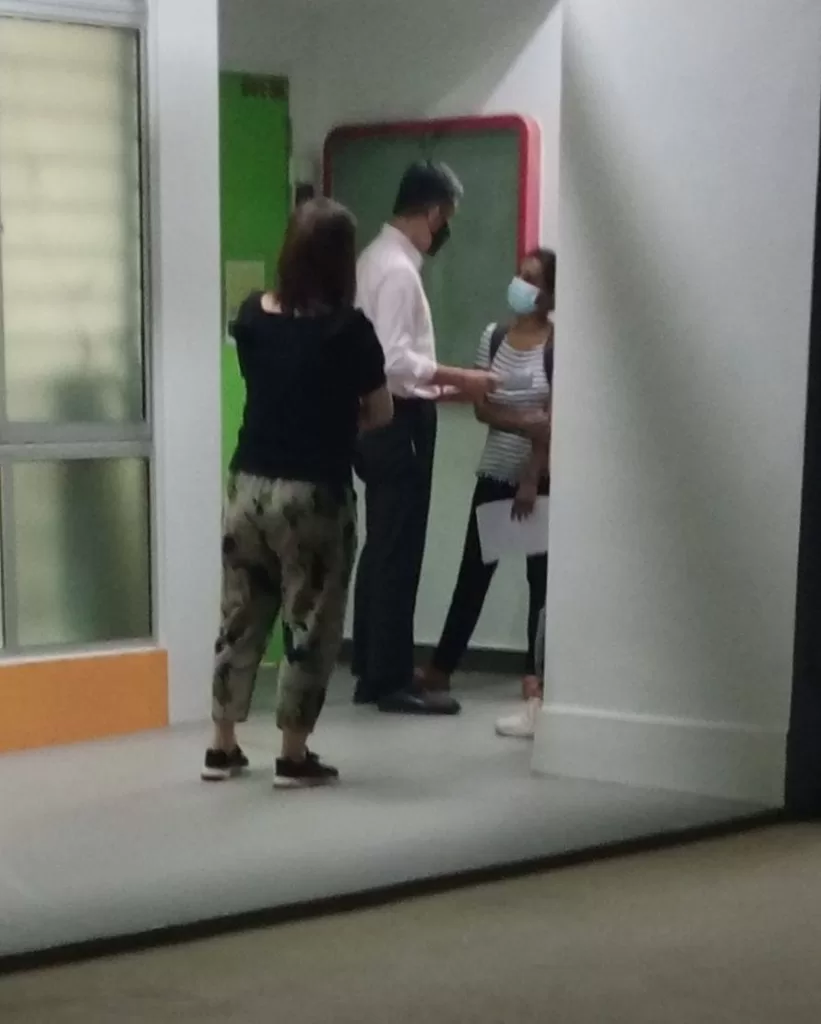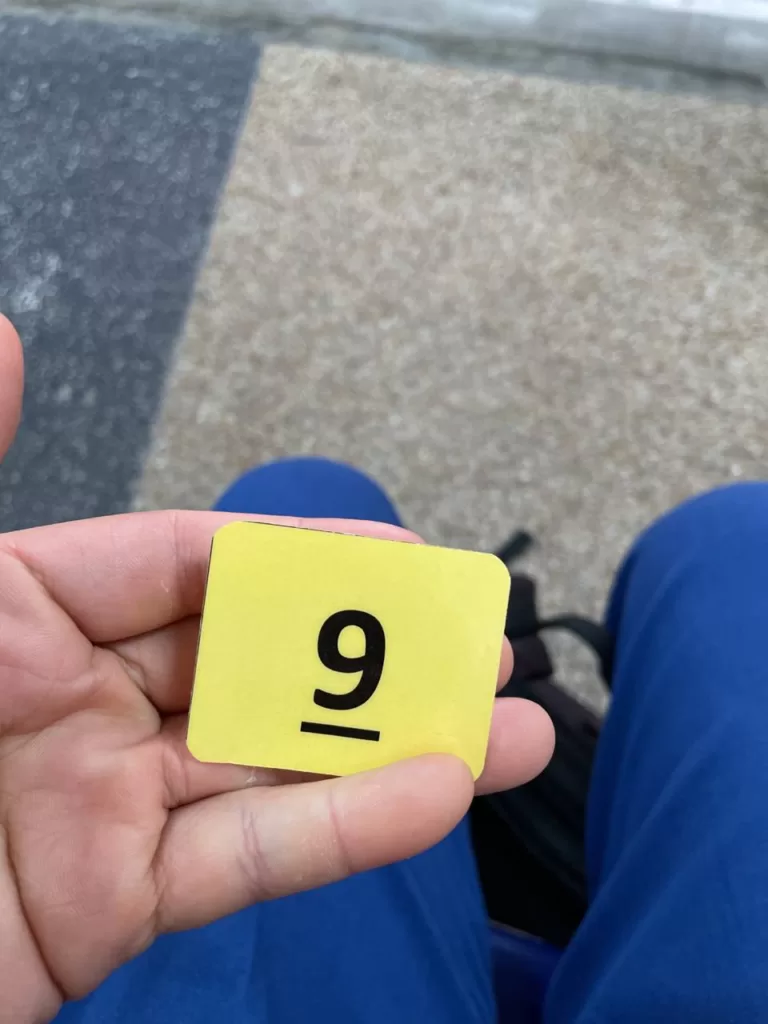What Is This About?



Between 20 June and 1 July 2022, over 30 volunteers attended various MPS sessions, looking to speak with Cabinet ministers about the death penalty.
Many of the ministers weren’t present at the sessions, but the volunteers managed to meet Chan Chun Sing, Tharman Shanmugaratnam, Masagos Zulkifli, Muhammad Faishal Ibrahim, and Mohammad Maliki bin Osman. They also met Yaacob Ibrahim, who was standing for K Shanmugam at that session. They handed the ministers the people’s petition calling for a moratorium on the death penalty, with signatures they had collected from their friends and family. The volunteers posed questions about the use and efficacy of the death penalty in Singapore to the ministers.
Some of the ministers promised to review the petition and raise the issues in Parliament, but we have so far not heard back from any of them.
Ruang Renungan dan Refleksi
Click on the GRCs below to read about the volunteers’ experiences.
Tampines GRC
“We realised that we would be among the last to meet the minister. When we asked the person in charge of registration, he seemed quite annoyed and repeatedly said, “The minister will speak to all the residents first.” This seemed to imply that I was not a resident, and he also said that they prioritised those with financial issues first. When I asked why my query was not as important as the rest, he said, “The person who will be hanged is not in your family right?”
At about 10pm, the volunteers had all started to pack up and I was worried that I would not be able to speak to the minister. When I saw the minister walk out of the void deck, I stood up and asked if I would be able to see him, to which the volunteer said that I would have to go to a private venue to speak with him. I saw that the minister was walking towards a door in the block adjacent to the MPS void deck, which was presumably the back door of a PA centre. I asked if it would be possible for my friends to accompany me, but was told that, due to the private nature of my concern, I could only go alone.
I was reluctant to go alone but ultimately decided to go ahead with it because I wanted to speak to the minister. My friends had to wait outside. I was on my own in the room, while the minister was accompanied by multiple staff and volunteers.
Masagos had entered a separate room which they referred to as his office. I was told that I would not be allowed to bring my bag or even my phone into the room to speak with him.
After greeting me, Masagos explained that his assistant would stay in the room even though I had asked for a private session, because he did not want to be alone with me as he’s a man and I’m a girl. I explained that I had come to meet him because I am deeply concerned for the people who are currently on death row. I offered him a folder with all the signatures we’d collected for the people’s petition.
Masagos’ response was that examples from other countries don’t take into account the uniquely vulnerable position that Singapore is in, and mentioned that there have been studies done in Singapore on this issue. I pointed out that those studies had not been independently reviewed, but also said that I was not there to argue with him. I stated that I had come to draw his attention to the number of Singaporeans who feel that the death penalty is unjust and are demanding a moratorium.
At one point, Masagos asked me, “Do you want people to die?” I was flabbergasted and said, “No, of course not.” He replied, “So you want drug addicts to die?” I pointed out that many drug traffickers were themselves drug users who did not receive enough support from the state and had to turn to trafficking to support their consumption. He interrupted me then, saying, “You have clearly talked to a lot of people about this, thank you for your efforts.”
It seemed like he wanted to end our conversation quickly. I said I had a list of questions for him to answer; he responded that he could not guarantee an answer and would maybe forward them to the relevant agencies.
As I was leaving, he said “I encourage you to read up on what Islam says about the death penalty.”
I was quite shaken because I did not expect to be treated so rudely and with so much suspicion. I also did not expect to be guilted on the basis of my religion. I waited for the whole night to meet with him but he did not give me more than 10 minutes and was very curt with me. I was not able to say everything I wanted to and I feel like my concerns were not taken seriously at all.”
Siglap GRC
“On the 27th of June, two of us went to the Meet-the-People session in Siglap to meet Dr. Mohammad Maliki bin Osman. I have personally met him before a few times, and from those few times I met him, he has an incredibly kind disposition when he meets people. He recalled the time I met him, and the discussion session I was a part of.
And then I mention the death penalty. I mention the need to abolish it. I share Nagaenthran’s story. His aura doesn’t fade, but transforms into a facade. It becomes superficial to the absolute horrors of state power that he represents. When I questioned why Nagaen had to be killed, he asked if I was “doubting due process”. He asked if we had taken note of the “facts mentioned in Parliament”.
When we asked him to conduct transparent and independent studies on the death penalty regime instead of centring “people’s feelings” as evidence, his only reply was, “If that shows the death penalty is indeed effective, would you still oppose the death penalty?”
I was horrified by how ready he seemed to dismiss the lives of people in need, especially as a former social worker himself, and his willingness to kill them for the sake of “effectiveness” (which has never been clearly proven).
It’s like the death penalty is his hill, is the entire state’s hill, to die on. They want to defend the right for the state to kill. And that right to kill, that right to end life, that right to control life, falls the hardest on desperate people.
I can safely say that, in a closed-door, two-to-one, simple Meet-the-People session, we can’t change their minds. What we need is twenty-to-one, two hundred-to-one. We need people power. And we can do it. We can show up in numbers.”
Questions for Cabinet Ministers

We’ve listed the questions that volunteers brought to the Meet-the-People sessions below. So far, we have received no responses to these questions, even though more than one minister promised to refer them to the relevant government agencies. If you have the opportunity to engage with your elected representatives, you can also ask them these questions.
Access to information and evidence on the death penalty
- The government says the death penalty for drugs keeps Singapore safe. What conclusive evidence (or any evidence) do you have to prove this? Has the amount of drugs coming into Singapore gone down since the death penalty was introduced? From the news, it looks like there are more and more drugs coming into Singapore. How do you account for this?
- Why does MHA not rely on independent research to justify the use of the death penalty and its deterrent effect, rather than its own internal, non-peer reviewed studies that are not available for public or academic scrutiny?
- Why does the government refuse to acknowledge that many of the people who are on death row also suffer from addiction and/or poverty and did not get the support, treatment and resources they needed before ending up in the drug trade?
- Why do we not see any mainstream media coverage of alternate views on the death penalty? Why didn’t these media outlets cover anti-death penalty campaigns (eg. for Nagaen) and other developments that present a view that is different from the government’s?
Lack of information about the people facing the death penalty
- How many people are on death row?
- What were the charges that each person on death row was convicted of?
- Under what circumstances was each person on death row sentenced to death?
- What are the demographics of people on death row? What is their age, gender, ethnicity, nationality, education level, employment history, income level prior to incarceration, etc. We need disaggregated data on death row prisoners.
- How does the prison decide when to schedule executions, and who to schedule? Why was Datchinamurthy’s execution scheduled just two days after Nagaenthran’s?
Lack of procedural and legal protections
- Why do our courts sentence people to death even when the prosecution or judge accept that they did not know they were carrying drugs?
- Why are accused persons in capital drug cases presumed to be trafficking when found in possession of small amount of drugs?
- Why can accused persons be convicted almost solely on the testimony of a co-accused person, who might have an incentive to push the responsibility onto them?
- When there is a capital amount of drugs involved in a case, how does the prosecution decide when to engage in plea bargaining, when to proceed on a reduced charge, and when to prosecute a capital case?
Concerning revelations
- It’s been revealed and is uncontested that the prison has been illegally forwarding the correspondence between prisoners on death row and their lawyers/family members to the AGC in many instances. Why did this happen? For how long has this been happening? There has to be a public accounting of all the facts, through an independent investigation. Shouldn’t all those prisoners’ convictions be vacated automatically? Given this revelation, how can we be confident that the AGC has not used any correspondence given to them to their advantage, beyond trusting their bare assertions that they have not?
- We’ve seen reports of officers from the Central Narcotics Bureau (CNB) physically assaulting accused persons, and we also know that CNB engages in entrapment. Why is there no independent review of CNB’s practices and the safety of capital convictions?
Is there a right to adequate representation?
- Why did Nagaen’s mother and Datchina have to represent themselves at their last appeals? Datchina got a stay of execution after representing himself — he saved his own life. Why do we have a system where people who are on the brink of death have to represent themselves in court, rather than have lawyers represent them?
- Why are lawyers who bring late-stage applications in death penalty cases subject to so much intimidation? Why are they subject to heavy cost orders, accused of abusing the court process, and have disciplinary actions taken against them by the Law Society and courts? The AGC recently said that some might even face charges of contempt, just for doing their best to defend a client — why?
Does the clemency process actually work in Singapore?
- Why hasn’t clemency been granted to anyone on death row since 1998?
- On what basis does the Cabinet decide to advise the President to grant clemency (or not)?
- Have you personally advocated for anyone on death row to be granted clemency? Why, or why not?
Why are conditions on death row so terrible?
- Why do prison regulations single out death row inmates for worse treatment by mandating their confinement away from other people?
- Why aren’t death row prisoners allowed e-letters, phone calls and contact visits?
- Why are death row prisoners kept in single cells?
